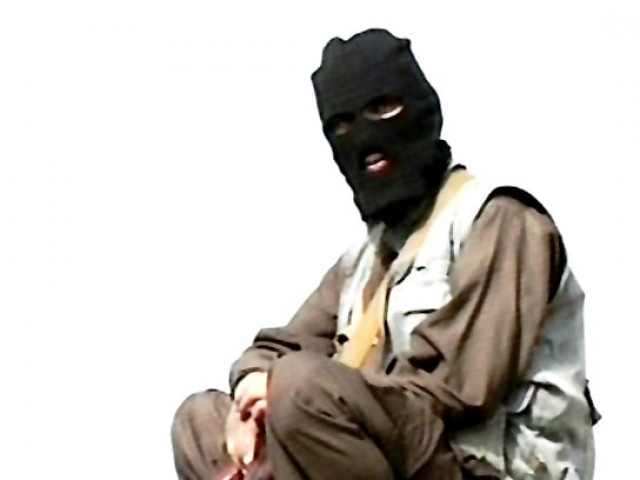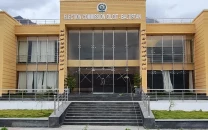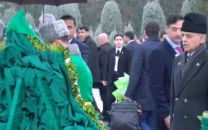Talking to the terrorists
The truth is that Pakistan has to fight al Qaeda and its warriors to the bitter end.

In the regional battlefield, anyone who talks about talks is assumed to be on the run after being worsted in the overall war. That is what it means to all Pakistanis when the Americans say they are willing to talk to the Taliban. The American press makes no bones about the ‘defeat’ of the US in yet another encounter with the Muslim world after Iraq. The belief, therefore, that anyone who talks about peace talks is on the run has taken root in Pakistan. The language used in the Pakistani Urdu press contains honour-related words that heap sarcasm on the sole world power that couldn’t fight our ‘brave terrorist warriors’.
The Taliban commander who wants to remain unnamed must be fully conscious of the meaning of agreeing to engage in talks. The Pakistan Army, too, knows what it means to yield to the vocabulary of peace and has quickly rejected the rumour that it is engaged in any talks. It has memories of talking to Sufi Muhammad in the Swat-Malakand region and still hurts from the peace deals its two Peshawar-based generals had made with Nek Muhammad and Baitullah Mehsud. It is fighting with the TTP in Orakzai and is dealing with a tough nut called Mangal Bagh in Khyber Agency. And no quarters are given or taken.
The Taliban know that the political opposition in Pakistan is ceaselessly talking about ‘talking to our brothers’ in the Tribal Areas and not siding with the Americans ‘against our own people’. They take it as a weakness on the Pakistani side as it undermines the morale of the Pakistani soldier who is risking his life standing up to the terrorists who kill innocent Pakistanis, kidnap businessmen all over Pakistan for ransom and blow up children’s schools. They look at Imran Khan, the proponent of talks with the Taliban, with suspicion as he might finally put paid to the greatly profitable enterprise of terrorism through the ruse of talks.
Whether you like it or not, talks become meaningful when the two sides measure the costs of war and come to the conclusion that ending it would save human life and free up resources. More often, it is the dominant party that offers talks from a position of strength and hopes to extract advantage from an adversary under pressure in the battlefield, thinking that a settlement is better than defeat. It is the implied defeat in peace talks that deters the Taliban from negotiations. The Americans stepped up the war against them to bring them under pressure and it has not worked.
Talking to the Taliban will be problematic for two reasons. Within the TTP, there are warlords loosely allied against Pakistan with no firm central command capable of taking decisions on behalf of all of them. Since the TTP itself is subordinated to al Qaeda, the big decision about starting negotiations will rest with Ayman alZawahiri who will then talk to his downstream warriors such as the Lashkar-e-Jhangvi and Jundullah. As far as one can judge from the map of violence from Peshawar to Karachi, it is the Pakistani side which is on the run, while politicians of various stripes are seen actually willing to capitulate.
The unnamed TTP commander says the group has ceased its terrorist attacks because the Pakistan Army is talking to it. That is not true because after his statement people have been killed in DI Khan and Karachi by TTP affiliates. The truth is that Pakistan has to fight al Qaeda and its warriors to the bitter end. Fortunately, the world is also under threat from these terrorists using Pakistan as their training ground and is willing to help. The wrong recipe would be challenging the world through isolationism and becoming soft on the terrorists by appealing to their human kindness.
Published in The Express Tribune, November 24th, 2011.



















COMMENTS
Comments are moderated and generally will be posted if they are on-topic and not abusive.
For more information, please see our Comments FAQ